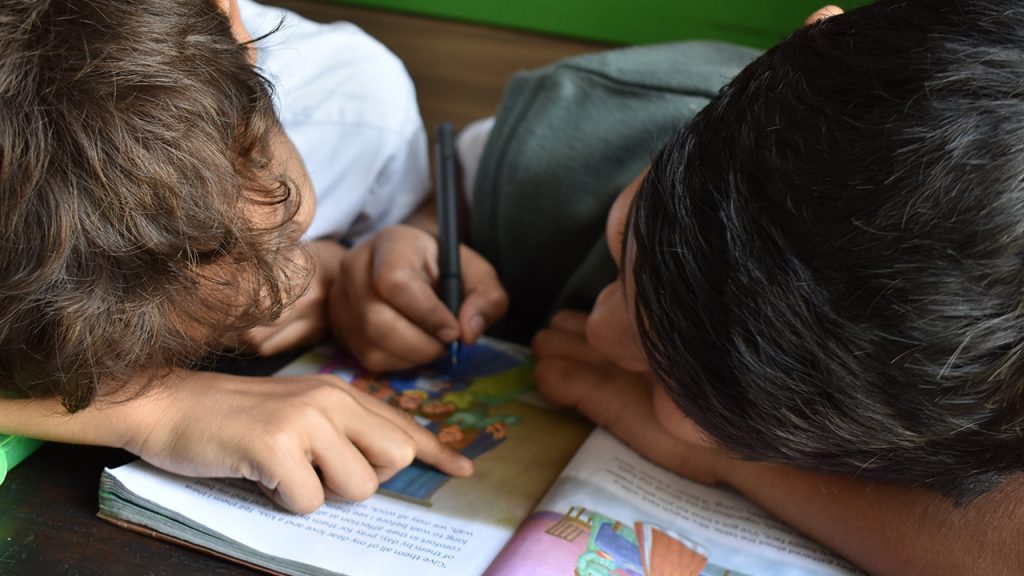Michigan Is Investing Over $170 Million to Help Low-Income Families Get Better Jobs and Go to College
Some of the programs aimed at lifting Michigan families out of poverty include child care, children’s savings accounts and free community college tuition for frontline workers.

Nearly 40% of working Michigan families struggle with necessities like housing, food, health care and child care. The Michigan Poverty Task Force has been working to get funds for programs to help residents out of poverty.
With recommendations from the task force, Gov. Gretchen Whitmer diverted more than $173 million into several programs aimed at helping low-income Michiganders improve their families’ future. According to Whitmer’s 2022 budget, $2 million will be used to build the Children’s Savings Accounts Program, which aims to encourage low-income residents to build wealth for their children. Money will also go toward secondary education for adults in the state looking to gain new skills.
The goal of the state’s economic development strategy has long been attracting jobs, but with a skills gap in Michigan, there’s a need to help prepare residents for well-paying jobs, says Kim Trent, the deputy director of prosperity for the Michigan Department of Labor and Economic Opportunity.
“We want people to be able to comfortably pay for shelter, food, all the staples of life, to be able to send their children to college.” –Kim Trent, Michigan Department of Labor and Economic Opportunity
“For a long time, the goal was just to try to attract jobs,” she says. “We really want to attract good-paying jobs. We want people to be able to comfortably pay for shelter, food, all the staples of life, to be able to send their children to college. Just getting any old job is not the path to doing that. And so in order for us to really be able to help people prepare for the jobs of the 21st century, we really need to upskill, we really need partnerships.”
The state is building relationships with labor unions and community colleges. To help residents get to the next level of jobs, Trent says the Futures for Frontliners program gives free community college tuition to people who worked on the frontlines as essential workers during the early days of the COVID-19 pandemic.
“The state really is invested in having more Michiganders have those postsecondary credentials,” Trent says. With its Sixty by 30 initiative, the state is working increase the number of residents with postsecondary education from 49% to 60% by 2030. “This [initiative] helps … families have the economic tools they need, so that their children will have another incentive to go to either college, or college community college or some kind of postsecondary training.”
Before Kids Get to College
Another initiative is the Children’s Savings Account program, which aims to help families save money and build wealth. It’s a way for families to save money for children to go to college or for educational purposes, “all those things that are necessary to have a really good well-rounded education,” Trent says.
Research shows that if a family is able to save modest amounts, the family is more likely to have a child who finishes college compared to a family that does not have any savings, Trent says.
Child care can be expensive for low-income families, and that was brought into sharp focus during the pandemic. The demographic least likely to return to work is women because of lack of quality or affordable child care options, Trent says. One way the state has tried to address that is through the Tri-Share Child Care Pilot Program.
“In certain regions of the state, we will have a hub that will go out and try to recruit businesses for a program where the state will pay 1/3 of child care costs. The parent will pay a third and the employer will pay the third,” she says. “[The state is] trying to come up with creative ways to ensure that child care remains or is affordable and that people are getting high quality child care.”
Listen: Kim Trent talks about the state’s programs aimed at helping low-income families.
Trusted, accurate, up-to-date.
WDET strives to make our journalism accessible to everyone. As a public media institution, we maintain our journalistic integrity through independent support from readers like you. If you value WDET as your source of news, music and conversation, please make a gift today.
